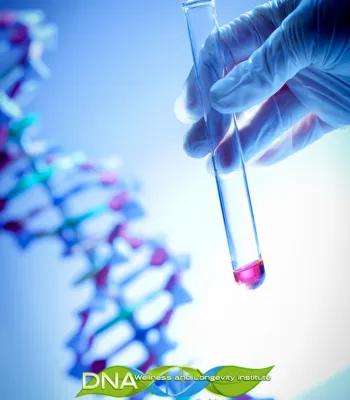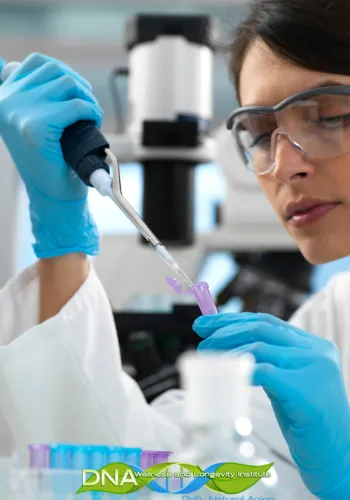PRP Platelet-Rich Plasma
Revitalize Your Body with PRP Therapy
At DNA Wellness and Longevity Institute in Bonita Springs, FL, we offer Platelet-Rich Plasma (PRP) therapy, a cutting-edge treatment that uses your body’s own healing properties to rejuvenate and repair tissues. PRP therapy is a natural and effective solution for a variety of conditions, providing benefits from skin rejuvenation to pain relief.
Understanding PRP Therapy: PRP therapy involves drawing a small amount of your blood, processing it to concentrate the platelets, and then injecting the platelet-rich plasma back into the targeted area. Platelets are rich in growth factors that stimulate healing and tissue regeneration.
Benefits of PRP Therapy
Skin Rejuvenation: Reduces Fine Lines and Wrinkles: Stimulates collagen production to smooth out lines and wrinkles.Improves Skin Texture and Tone: Enhances the overall appearance and feel of your skin.Promotes Healing: Accelerates the repair of damaged skin tissues.
Hair Restoration: Stimulates Hair Growth: Encourages the growth of new hair follicles.Strengthens Existing Hair: Improves the health and strength of existing hair.
Joint and Tendon Repair: Reduces Pain and Inflammation: Alleviates discomfort associated with joint and tendon issues.Accelerates Healing: Promotes faster recovery from injuries.Improves Mobility: Enhances joint function and flexibility.
Sexual Health: Enhances Sexual Function: PRP therapy can improve sexual health for both men and women.Increases Sensitivity: Boosts sensitivity and overall sexual satisfaction.


Is PRP Therapy Right for You?
If you are experiencing any of the following, PRP therapy may be beneficial for you:
Fine lines and wrinkles
Uneven skin tone or texture
Hair thinning or loss
Joint pain or tendon injuries
Reduced sexual function or satisfaction
The Process of PRP Therapy
Initial Consultation: Your journey with PRP therapy begins with a comprehensive evaluation by our medical professionals at DNA Wellness and Longevity Institute. We will discuss your health concerns and goals to determine if PRP therapy is right for you.
Treatment Session: During the treatment session, a small amount of blood is drawn from your arm. This blood is processed in a centrifuge to separate the platelets from the other components. The concentrated platelets are then injected into the targeted area. The procedure is minimally invasive and typically takes about an hour.
Results and Aftercare:Results from PRP therapy can vary depending on the area treated. Skin rejuvenation and hair restoration may show visible improvements within a few weeks, while joint and tendon repair might take a few months. We will provide you with detailed aftercare instructions to ensure optimal results.
Common FAQs About PRP Therapy

What is PRP therapy?
PRP therapy involves using concentrated platelets from your own blood to stimulate healing and tissue regeneration.
How long do the results last?
Results can last several months to a year, depending on the treatment area and individual response.
Are there any side effects?
Side effects are minimal and may include mild swelling, redness, or bruising at the injection site. These typically resolve within a few days.
How soon will I see results?
Results vary by treatment area. Skin and hair improvements can be seen within a few weeks, while joint and tendon healing may take a few months.
Is PRP safe?
PRP therapy is generally safe when administered by healthcare professionals, as it uses your body’s own blood components, minimizing the risk of adverse reactions.
Why Choose DNA Wellness and Longevity Institute
Our team at DNA Wellness and Longevity Institute in Bonita Springs, FL, is dedicated to providing personalized care tailored to your specific needs. We conduct thorough evaluations to determine the underlying causes of your symptoms and develop a customized treatment plan to optimize your testosterone levels safely and effectively.
